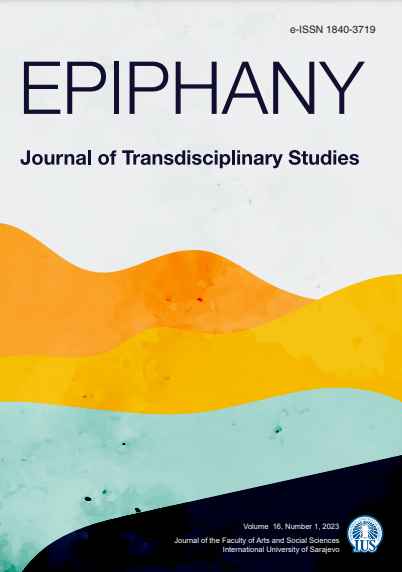HAMLET’S STOIC DELAY: SHAKESPEAREAN APPROACH TO SENECAN PHILOSOPHY
HAMLET’S STOIC DELAY: SHAKESPEAREAN APPROACH TO SENECAN PHILOSOPHY
Author(s): Mustafa Sahiner, Güliz Merve BayraktarSubject(s): Ancient Philosphy, Theory of Literature, British Literature, Sociology of Literature
Published by: International University of Sarajevo
Keywords: Hamlet; Horatio; Shakespeare; Seneca; stoicism;
Summary/Abstract: Seneca’s impact on the Renaissance tragedians is undeniable. His depictions of violence, terror and murder experienced by humans pursuing their passions became a model for the early modern English tragedies. Senecan tragic elements, the ghost, the chorus; and stock characters such as the hag and the tyrant can be found in the works of Thomas Kyd, John Marston, George Chapman, and others, guiding their style in tragic writing. As a Renaissance dramatist, Shakespeare, in Hamlet, refers to Seneca from a different perspective by responding to his stoic philosophy. It is asserted in this study that in the play, Hamlet struggles to be a true stoic and desires to be purified like Horatio as it is apparent in his famous delay. He takes the stoic cure of delaying to deal with anger and pursues this judgement almost until the end of the play. Hamlet fails, while Horatio succeeds, in following the stoic teaching of avoiding human passions. This study argues that through these characters, Shakespeare shows that stoic teachings that block human emotions are not practical with the extreme conditions one faces in life. Hamlet is a human with all the dilemmas, passions and rage that make him real, while Horatio does not seem realistic with his indifference towards all the tragedy around him. Thus, Shakespeare keeps Hamlet within the boundaries of humanity by enabling him to finally decide to take action, no matter the outcome.
Journal: Epiphany. Journal of Transdisciplinary Studies
- Issue Year: 16/2023
- Issue No: 1
- Page Range: 100-113
- Page Count: 14
- Language: English

